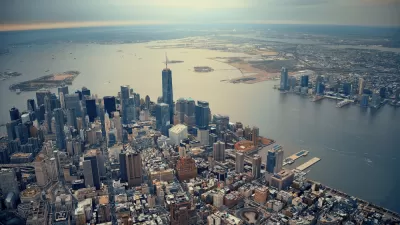Identifying potential hubs and activity centers allows regions to foster economic growth and density.

"To be economically competitive, state, regional, and local leaders need to align their infrastructure, economic development, and land-use policies to support and grow concentrations of activity, rather than encourage sprawl," write Tracy Hadden Loh and Joanne Kim.
Economic mapping is a strategy that looks at areas based on a range of key measures to bring together regional planning and strategized economic development. In Cincinnati, for example, Plan Cincinnati is a guide for future planning:
Twelve working groups examined the city’s assets and opportunities around key elements ranging from arts and culture to fiscal impact, governance, and infrastructure. Based on the findings, the city mapped existing and potential activity centers and now prioritizes its resources to support their growth.
Loh and Kim discuss other economic mapping efforts in Portland, Oregon, Northeast Ohio, and Washington, D.C. "Far more cities and metro areas need to better coordinate their strategies for increasing the quality of existing concentrations of activity, and expand investments into places with potential to become such hubs," they say.
FULL STORY: ‘Economic mapping’ can help cities target the best places for density and growth

Planetizen Federal Action Tracker
A weekly monitor of how Trump’s orders and actions are impacting planners and planning in America.

Chicago’s Ghost Rails
Just beneath the surface of the modern city lie the remnants of its expansive early 20th-century streetcar system.

San Antonio and Austin are Fusing Into one Massive Megaregion
The region spanning the two central Texas cities is growing fast, posing challenges for local infrastructure and water supplies.

Since Zion's Shuttles Went Electric “The Smog is Gone”
Visitors to Zion National Park can enjoy the canyon via the nation’s first fully electric park shuttle system.

Trump Distributing DOT Safety Funds at 1/10 Rate of Biden
Funds for Safe Streets and other transportation safety and equity programs are being held up by administrative reviews and conflicts with the Trump administration’s priorities.

German Cities Subsidize Taxis for Women Amid Wave of Violence
Free or low-cost taxi rides can help women navigate cities more safely, but critics say the programs don't address the root causes of violence against women.
Urban Design for Planners 1: Software Tools
This six-course series explores essential urban design concepts using open source software and equips planners with the tools they need to participate fully in the urban design process.
Planning for Universal Design
Learn the tools for implementing Universal Design in planning regulations.
planning NEXT
Appalachian Highlands Housing Partners
Mpact (founded as Rail~Volution)
City of Camden Redevelopment Agency
City of Astoria
City of Portland
City of Laramie



























